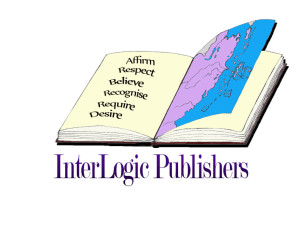After World War II, the finances of the British government were dire. To improve the price of British products on the international markets, the London government devalued the pound. The Belize dollar was also devalued from $2.80 for the pound to $4.00 to the pound. This meant that cost of imports and cost of living in general would increase immediately in British Honduras.
The very night of the devaluation, the People’s Committee was formed with John Smith as Chairman and George Price as Secretary. The People’s Committee was originally an ad hocorganization but support from the masses caused it to morph into Belize’s first political party, the PUP.
September of 1950 when the People’s Committee dissolved itself to become the PUP. The leader of the party was John Smith, Chairman Leigh Richardson, Secretary George Price and Assistant Secretary Philip Goldson. The paramount goal for the PUP was the attainment of political independence for Belize.
Realizing that the British would not simply give up Belize, the immediate goals of the PUP were to achieve national elections under Universal Adult Suffrage and to get a new democratic constitution for Belize. However, there were differences within the leadership as to how Belize would achieve independence. These differences of opinion caused John Smith to resign from the PUP in November of 1951. This resignation affected the PUP for a brief period but the movement was able to achieve Universal Adult Suffrage in 1954.
Universal Adult Suffrage came in time for national elections in 1954. In this election, George Price, Philip Goldson, Leigh Richardson, Herman Jex, Enrique Depaz, Jose Chin, George Flowers and Nathaniel Cacho from the PUP all won seats in the Legislative Assembly which had replaced the appointed Legislative Council.
However, the unity displayed by the early nationalists was short lived. This was because of a change in the PUP which occurred on September 26, 1956 when a split in the leadership of the party occurred. According to one account, Leigh Ricahardson, William Coffin, Herman Jex and Philip Goldson resigned their positions in the PUP during a public meeting.
These leaders accused George Price and Nickolas Pollard of creating disunity in the party. Another account states that Leigh Ricahardson, William Coffin, Herman Jex and Philip Goldson were expelled from the PUP because they had held secret negotiations with the British for the colony to enter into the West Indian Federation. This Federation was envisioned as a British oriented political union among the colonies in the West Indies. Despite the resignations and the split, the PUP matured and became the most important political party in the country.
In addition to the PUP, the National Party was formed with W. H. Courtney as President and Herbert Fuller as Vice President shortly after the PUP came into existence.
After the split in the PUP in September of 1956, Leigh Richardson and Philip Goldson formed the Honduran Independence Party in October of the same year.
In 1958, the HIP disbanded itself and jointed with the National Party to form the National Independence Party. Other parties which formed also included the Christian Democratic Party, the United Black Association for Development and the People’s Development Movement. The United Democratic Party was not formed until 1973.
Thus, in the late 1950s, party politics in Belize was developing rapidly and there was constant agitation for independence. Britain was spending £5 million in annual grants in Belize and was interested in cutting the costs of propping up its former colonies. For Belize, the only impediment was the Guatemalan Claim.
In 1957, George Price and a six member delegation were invited to London to discuss British aid to Belize. During this visit, members of the Belize delegation, including George Price, met with Jorge Granados, the Guatemalan representative in London. Granados presented a proposal which would have Belize attain self government but within a Central American Federation. This meeting was not “authorized” by the British who immediately accused Mr. Price of selling out Belize “lock, stock and barrel.” The Governor returned to Belize and presented his case on the radio. However, the Belizean public did not accept his assertions. Instead, Mr. Price was given a hero’s welcome home when he returned from London. Shortly after, the PUP went on to win the Municipal elections of 1958.
Three years later the PUP won all eighteen seats in the Legislative Assembly. From this point on, the Belize Government participated in the negotiations which the British and the Guatemalans undertook to solve the territorial dispute.
During this period, a defining moment was the passage of Hurricane Hattie on October 31, 1961. Hurricane Hattie killed 262 people in Belize City, and rural Belize, Stann Creek and Cayo Districts including many on the Cayes.
